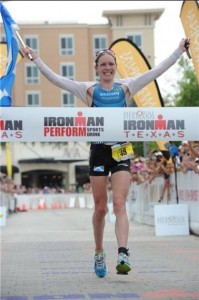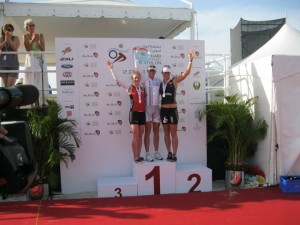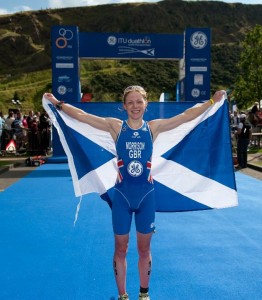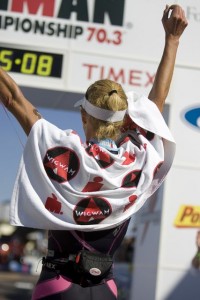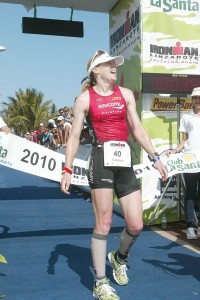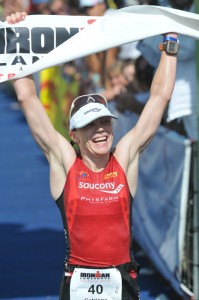There are athletes, and then there are athletes.
I have had the good fortune of working with some of the best athletes in the world. At Cat’s level, you get all sorts. There are the athletes for whom every setback represents a catastrophe, and those who tough things out besides discomfort or injury. And then you have Cat. I once joked that Cat is the sort of athlete who could suffer an amputation mid-race, and would call me afterwards and say, very calmly: ‘Yeah Phil, my foot fell off halfway through the run, but I tied it off with a bit of shoelace and kept running on the bloody stump.’
Catriona has had an amazing season so far. She had great wins at the Texas 70.3, a hat-trick at St. Croix, and now this. There are all sorts of lessons to take from our approach to training and racing. The most important is the benefit of a calm mind and a rational approach. Two weeks before this latest race, Cat emailed me pictures of an outrageous blister on her foot. In all honesty, it was one of the worst I have seen in my medical career. It wasn’t the sort of thing you wanted to see when an athlete is trying to get in their last big workouts before one of their biggest races of the season.
The thing is, nobody freaked out. Cat, though a bit nervous, was basically calm where other athletes have called me in similar situations in hysterics. I assured her that this was no big deal, that there was plenty of training in the bank, and with a bit of adjustment of the taper using RaceDay Apollo, she would still smash the Ironman, which she did. There was no attempt to train through the injury, and there was no panic-fueled attempt to squeeze in extra training at the last minute afterwards. We simply decided it was a non-issue, and that recovery needed to be the main priority if we were still going to race well. We used the data we have carefully recorded to adjust the plan going forward to account for this setback. Problem solved.
Maintaining a calm outlook is also of great importance while in the thick of the race. Cat and I were both trained as scientists. The beauty of this is that we are able to dispassionately review and evaluate data. By keeping careful track of her training and racing, we know exactly how hard she can ride, and how long she can ride that hard for. We know how she will run after riding at different power outputs. This knowledge lends a certain amount of security. The other competitors in the race become a non-issue. People rode past Cat with their hair on fire, and we were happy to let them go. We had a rational plan and we stuck to it because was supported by data, not the emotional reaction to what others are doing. You can see the results every time Cat walks up that podium.
The take home message is this: Learn to separate your emotions from the situation you find yourself in. The best athletes, firefighters, doctors, or soldiers succeed under pressure because they are able to dispassionately assess very stressful situations and then act accordingly. This is a learned skill. Get out there and practice it 🙂
